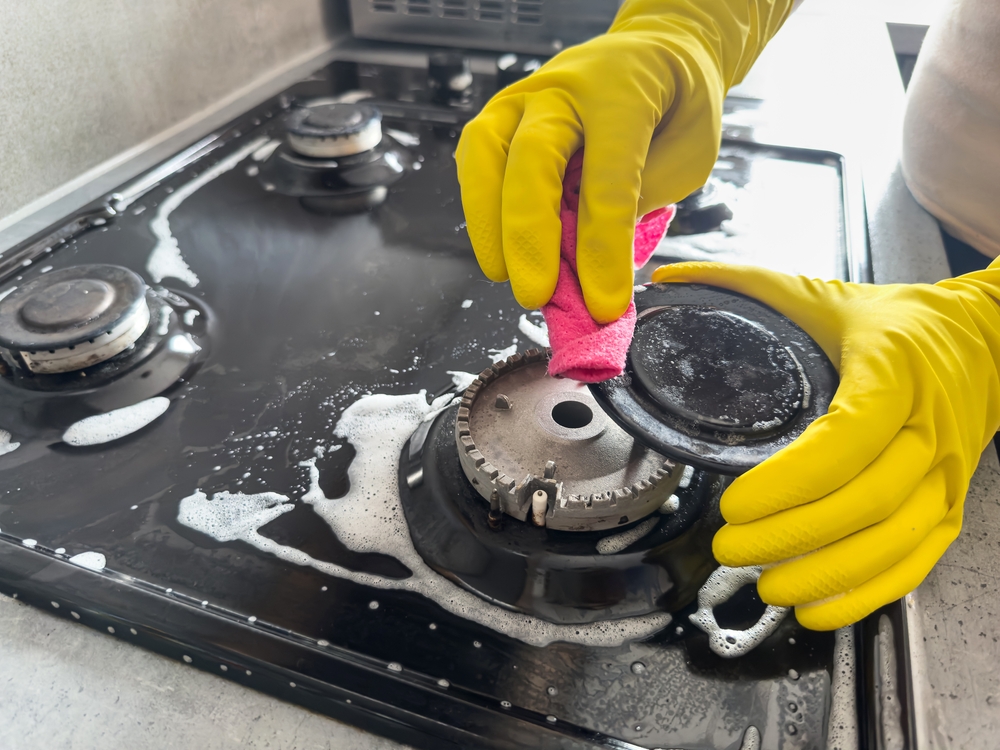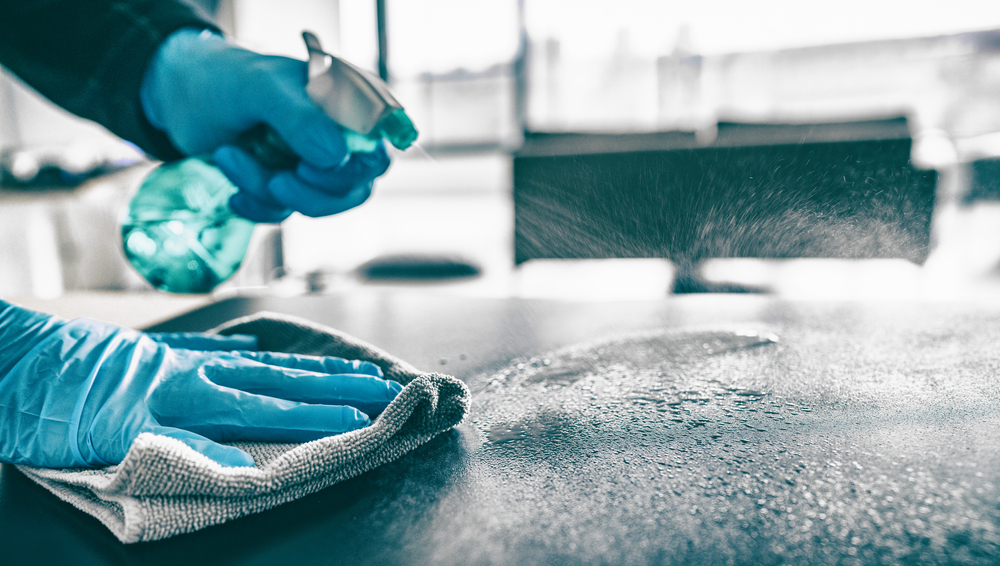Experts reveal the neglected areas of your kitchen cleaning routine as nearly half of people don’t clean chopping boards and knives correctly
Cleaning and catering experts have revealed the items in your kitchen which are most overlooked when it comes to your cleaning routine.
From cabinet handles contaminated with bacteria to pathogens in your oven gloves, deep cleaning the lesser-known parts of your kitchen is crucial to avoid the spread of germs, cross contamination and more.
In light of this, John Girvan from Alliance Online Ireland, who specialise in commercial cleaning supplies shares the parts of your kitchen you should never overlook with tips to take inspiration from professional kitchen practices.
Oven Gloves
According to a 2002 study, high pathogen levels were found in oven mitts on both the inside and outside of the mitts. John adds “many of us don’t think to include our oven gloves when it comes to our wash cycles but they can harbour harmful bacteria directly onto hands which could transfer directly to other food or straight to yourself. To be on the safe side, throw your oven mitts in with your towel wash every week or so, or opt for silicone gloves which can be easily disinfected. The majority of professional chefs don’t use oven gloves for this reason, so take inspiration from them and invest in some heat resistant oven cloths which can be more easily washed.”
Fridge Seals
While your fridge might look sparkling clean on the inside, many of us forget to clean fridge and freezer seals regularly, allowing bacteria and even mould to thrive. The high moisture levels, food and liquid spills and accumulation of crumbs make them the perfect breeding ground for bacteria. “By regularly cleaning your fridge and freezer seals you’ll reduce the risk of harmful pathogens while also maintaining the quality of the seal which is vital for proper function of your fridge. A broken seal can put you at even further risk of microbial contamination if the temperature of the fridge drops as a result.”
Chopping Boards
A 2013 study by the Journal of Food Protection showed that 14% of foodborne illnesses are linked to incorrectly cleaned chopping boards and knives with only 46% of people cleaning them properly.
“While most of us know to clean chopping boards after contact with raw meat, the research shows this is not being done thoroughly enough” says John. “To correctly clean, make sure to scrape off debris, rinse with warm water before washing with dishwashing liquid and sanitising with food-safe cleaner. Make sure to give it a final rinse before leaving it to air dry or wiping with a clean tea towel. I’d recommend investing in colour coded chopping boards like you see in many professional kitchens to reduce the risk of cross contamination even further.” Proper chopping board maintenance and cleaning is essential with tips available via Alliance Online Ireland.
How to clean your kitchen like a professional chef

Professional chefs are subject to in-depth training around food safety, kitchen hygiene and upkeep but that’s not to say you can’t learn from the experts when it comes to your own kitchen. John shares his three top tips to keep your kitchen clean to even the highest standards.
- CAYG – Clean As You Go
Most professional kitchens have a clean as you go policy which involves regularly cleaning throughout the day. Designed to help minimise hygiene risks, this is a great habit to get into in your own kitchen and to teach the whole family. Aim to tackle spills and crumbs as they happen, clean utensils straight after use and frequently wipe down your surfaces as you’re preparing food.
- Mise en Place
In a professional kitchen, everything has its place in order to keep counter areas clutter free to avoid contamination. Keeping a tidy and well organised kitchen is one of the first steps to a proper hygiene routine so you can assess what needs to be cleaned and reduce the risk of cross contamination. Start by decluttering your space and organising your cupboards and countertops so you can cook as efficiently and cleanly as possible.
- Cleaning Schedules
Professional kitchens are required to have clear cleaning schedules to comply with Food Standards Agency regulations. While an in-depth document may be going overboard, a quick checklist of daily, weekly and monthly tasks will help you keep track of your kitchen at home and the areas which might otherwise be forgotten about.





